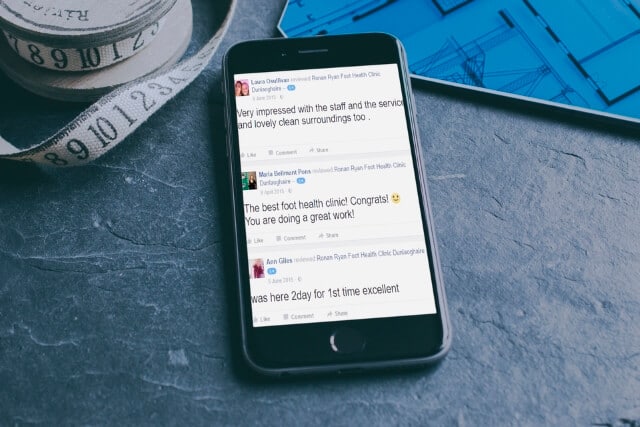An increasing majority of consumers are reading online reviews before making a purchasing decision.
The importance of online reviews for the accommodation and food industries has been apparent for many years now. What people have been slow to realise is that importance has spread across the entire retail sector. Online reviews are taking over from traditional word of mouth recommendations in the mind of the consumer.
According to the BrightLocal Local Consumer Review Survey 2016, 84% of consumers rank online reviews as important as personal recommendations. While there will no doubt be regional differences to that figure, there can be no doubting the importance online reviews now hold. Consumers trust other consumers when it comes to product and service research and making that final purchase decision.
The key points of BrightLocal’s Survey:
- 95% of consumers say they search for local businesses online
- 53% do so at least once a month (up 10% from 2015)
- 84% of consumers rank online reviews as important as personal recommendations
- 74% say that positive reviews mean they would trust a local business more
- 58% say that the businesses star rating is most important
- 90% form an opinion after reading fewer than 10 reviews
- 54% will visit a business website due to positive reviews
- 70% of consumers will leave a review if asked to do so

How do you get your clients to leave reviews?
The best way to get more reviews, as highlighted above, is to simply ask for them. The most effective way to do this is through an email or text message after a client interaction. Make the process as easy as you can for your client, providing the relevant links to leave reviews where possible. Oral requests for reviews in store can also yield results, but typically with a lower follow through rate.
Timing is also important, making it relevant to your customers and your product. For a simple, quick use item that follow up request could be sent within a couple of days. However, if it will take time for the consumer to reap the rewards of your product or service then give them that time to evaluate it properly before asking for a review.

How to deal with bad reviews?
Ultimately every product or service is going to receive some poor feedback. After all, you can’t satisfy all of the people all of the time. The good thing about bad reviews is that it provides another opportunity for you to differentiate yourself from your competitors. We find that handling poor reviews in the right way can help to turn negative feedback into a positive.
So how do you respond? First and foremost is to recognise that they have had a bad experience and apologise for it. By and large people just want to have their negative experience recognised and not to be simply dismissed. There is nothing more alienating than being ignored, especially after a negative experience.
Secondly is to publicly try and seek out a means to address the problem. This should, if possible be both retroactively for the complainant and to minimise such occurrences in the future. If consumers see you take action on bad experiences that gives them much greater confidence in you.
It is for this reason that LSB Marketing encourages our clients to embrace bad reviews and to respond positively to them. They provide you with the opportunity to publicly display your customer service credentials, which can at least minimise the impact of the bad review, if not turn it into a positive. They also provide valuable feedback for you to improve your own products and services, and to do so publicly. This further helps to inspire consumer confidence.
The last word on online reviews.
Remember that reviews also provide a Local SEO opportunity. Encourage your clients to mention the service you provided and their area in their reviews. This in turn will help you rank for those terms in those areas.
Fundamentally, online reviews provide businesses with opportunities to make a telling first impression and to engage with their consumers. Work out the most beneficial way to create a dialogue and engage with your clients over the long term. Engaging with your customers in meaningful dialogue builds brand confidence and loyalty greatly helping your overall success.

